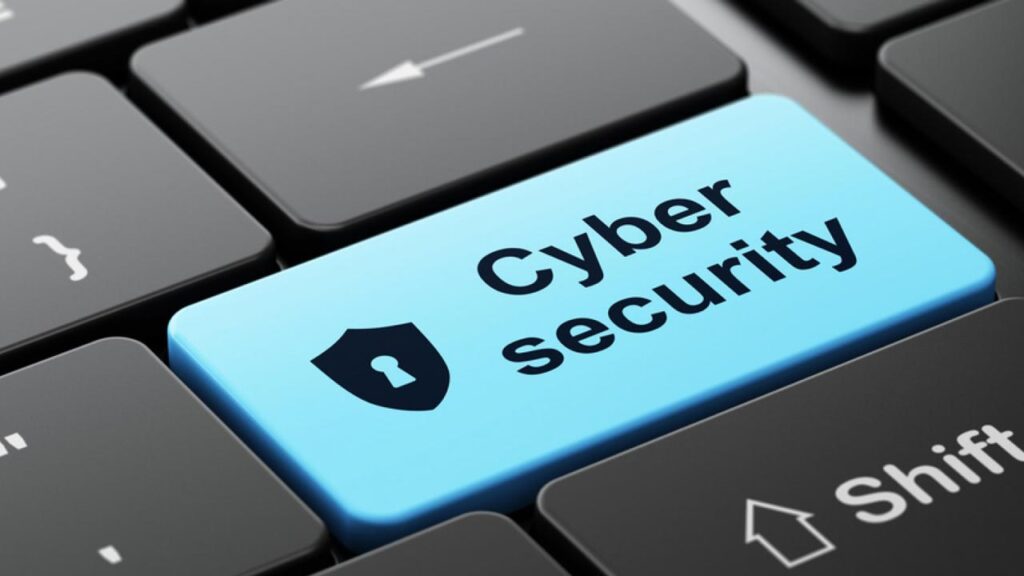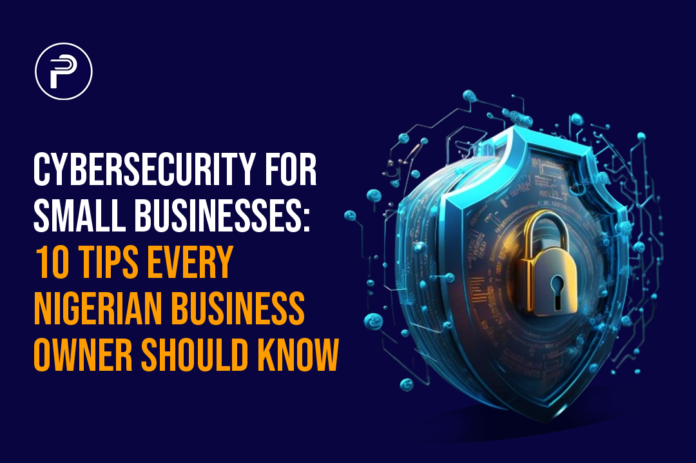We can all agree that running a modern business without the internet is almost impossible. Whether you’re a small fashion brand in minna, a fintech startup in Lekki, or a poultry business in Jos using WhatsApp to take orders, the internet opens doors to new markets and makes operations smoother. But as we all enjoy these digital benefits, we also have to face a growing problem, cyber threats.
Online fraud is no longer just about 419 emails or fake alerts; digital information theft is now one of the most common crimes worldwide, even in Nigeria. Every business, no matter how small, needs to take cybersecurity seriously,not just to protect their operations, but also to build trust with customers.
If you’re a small business owner in Nigeria, here are some guidelines to keep you on track and help u secure your business.
Must Read:The Career Value of a Project Management Certificate
10 simple but effective cybersecurity tips to help you protect your hustle:

1. Train Your Staff, Even That NYSC Intern
Start with the basics. Make sure your team knows how to set strong passwords, avoid clicking on suspicious links, and understand what’s okay (and not okay) to do online during work hours. Don’t assume people know, spell it out and create a simple guide everyone can follow.
2. Keep Your Devices Clean
Whether you’re using a laptop in your shop or your staff is working remotely, ensure your systems have updated antivirus software and the latest version of the operating system. It might feel like a chore, but one outdated app can leave you wide open to hackers.
3. Use a Firewall
A firewall helps block unauthorised access to your network. Most operating systems have one built-in,just make sure it’s turned on. If you or your team work from home, ensure their devices are protected too. Don’t assume Glo or MTN’s internet bundle is also providing security,it’s not.
4. Secure Your Mobile Phones – Cybersecurity tips
Let’s be honest,most of us run our businesses from our phones. If that’s you, then your mobile is as important as your laptop. Use a strong password or biometric lock, install security apps, and avoid connecting to free Wi-Fi in cafes or airports without protection. And if the phone gets stolen (God forbid), know how to report and remotely wipe your data.
5. Back Up Your Business Data Like Your Life Depends on It (Because It Does)
Imagine losing all your customer records, payment history, and inventory details overnight. Painful, right? Set up weekly (or daily) backups. You can use an external hard drive or cloud services like Google Drive or Dropbox. It’s better to spend a little now than lose everything later.
6. Limit Who Has Access to What
Not everyone in your team needs to see or edit everything. Give people access to only the files and tools they need. Also, avoid using one general login for everyone. Create individual user accounts and ensure only trusted staff have admin rights.
7. Secure Your Wi-Fi Like You Secure Your Business Location
If you run a shop, office, or work-from-home setup with Wi-Fi, make sure it’s password protected and not visible to the whole neighborhood. Change your router’s default login details, use a strong password, and avoid sharing it with just anyone,especially that customer who came to “browse small.”
8. Handle Online Payments with Care
If you accept online payments (via Flutterwave, opay, etc.), work closely with your payment processor to ensure you’re using secure methods. Avoid using the same device for business payments and personal browsing. Don’t play with people’s card details—Na serious matter o!
9. Don’t Let Staff Install Just Anything
A single downloaded game or free app can open your entire system to viruses. Let staff know they must get permission before installing anything on company devices. It’s not about policing,it’s about protecting your business.
10. Use Strong Passwords and 2FA (Two-Factor Authentication)
Encourage your team to use unique passwords and change them regularly. Better still, enable two-factor authentication for platforms you use, especially your email, social media, and financial tools. It’s a simple step that can save you big trouble later.
Final Thoughts: It’s Your Business. Secure It Like Your Baby.
Cybersecurity might sound like something only big companies worry about, but even the smallest naija business is a target. As long as you’re online, you need to protect yourself.
You don’t need to break the bank to get started,just being aware, setting up basic protections, and educating your team can go a long way.
Stay safe, stay sharp, and keep building your business with confidence.

